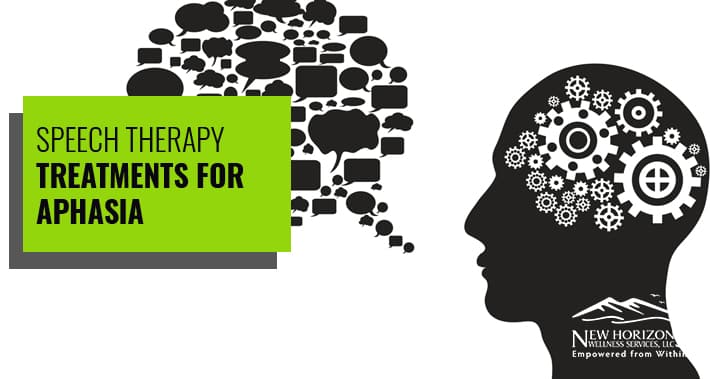
Speech and writing are a key part of how people interact, which is why it can be jarring when something interferes with them.
There are many conditions that can interfere with communication, and many treatment options for people struggling with them.
Aphasia is a condition in which damage to the brain impacts speech, comprehension, reading, and writing abilities.
It can be particularly difficult to deal with because the onset is often sudden and can be accompanied by other cognitive difficulties.
If you’re struggling with recovery from aphasia or any other speech or language concern Tigard Oregon speech therapy can help.
In this article we’re going to talk about what aphasia is, the different causes that can trigger it, and how a speech therapist can help.
If you’re worried that you or a loved one may be suffering from aphasia, it’s always a good idea to have a psychological & diagnostic evaluation to get to the bottom of it.
What Is Aphasia?
Aphasia is the term for a partial or complete loss of speech ability caused by damage to the brain.
It can be caused by a sudden brain injury or stroke, or over time by degenerative brain conditions, or a tumor.
The root cause can have a significant impact on the severity timeline for aphasia symptoms, and speech therapy can be helpful in recovering speech abilities once that cause has been addressed.
Aphasia can make speech, verbal understanding, reading, and writing difficult, but it does not have any impact on intelligence or cognitive function.
What Causes Aphasia?
The most common cause of aphasia is a stroke, when a blood vessel in the brain becomes blocked or bursts.
The resulting lack of oxygen causes damage to the cells of the brain, and in the case of aphasia causes damage specifically to the areas of the brain responsible for language.
Aphasia can also be caused by a number of other conditions that cause damage to the brain including severe head injury, degenerative brain conditions, or infections.
Because these causes are less localized they are more likely to come along with other cognitive difficulties like confusion and memory issues in addition to aphasia.
In addition to long term aphasia, migraines, seizures, or a condition called a transient ischemic attack can all trigger temporary aphasia.
Short term aphasia is important to watch out for as a transient ischemic attack can be an indicator of increased stroke risk.
Because the vast majority of stroke cases are among seniors, it’s most common to seek out a speech therapist for adults.
What Are The Symptoms Of Aphasia
Aphasia interferes with language processing overall, which means that its symptoms can vary not only in severity but also in how they affect communication capabilities.
It’s important to be mindful of symptoms of aphasia and seek medical attention if they appear since it’s often a symptom of brain injuries that can cause serious consequences down the line if left untreated.
1. How It Affects Comprehension
Aphasia can come with comprehension issues in varying degrees.
It can interfere with understanding of long sentences, quickly spoken sentences, or understanding spoken communication when there’s background noise or other conversation going on.
Difficulty understanding jokes may also be a symptom of aphasia.
Depending on the type of damage that caused the aphasia in the first place, it may interfere with comprehension more than it does with speech, or vice versa.
2. How It Affects Literacy
Because it interferes with the parts of the brain that process language, aphasia impacts both spoken language and written language.
Substitution of words or letters or writing of sentences that don’t make sense or are in the wrong order can be a symptom of aphasia.
It can also express as difficulty spelling or writing sentences at all.
Reading difficulties are also common in people with aphasia, including difficulty filling out forms or reading from books or screens.
Difficulty doing math, telling time, or counting money may also be symptoms of aphasia.
3. How It Affects Speech
One of the most common and noticeable symptoms of aphasia is a difficulty using words to communicate.
This can come in a number of forms.
Sometimes it interferes with the ability to form words or sentences.
It can lead to switching of sounds or word orders, difficulty thinking of words and assembling sentences, or putting sounds together that don’t form words at all.
Aphasia can also appear with long and complex sentences that don’t come together to make sense.
A sudden switch to short or incomplete sentences is also a common symptom of aphasia.

How Can A Speech Therapist Test For Aphasia?
If you’re concerned that you may be experiencing symptoms of aphasia, it’s important to see a healthcare professional as soon as possible.
The purpose is to diagnose the underlying cause of your aphasia.
Once we have a diagnosis, your speech therapist can assess the pattern of aphasia that you’re experiencing and help to determine the strengths and weaknesses you’re dealing with.
The assessment will evaluate how well you can understand words, sentences, directions, and stories, as well as your ability to express yourself both verbally and in writing.
Then, your speech therapist can help you to find strategies and treatments to help you communicate as well as you can.
How Can A Speech Therapist Treat Aphasia?
Treatment for aphasia can vary widely depending on the original cause as well as the extent of the damage to the parts of the brain responsible for language.
Depending on your communication priorities as well as your areas of greatest need, a speech therapist can tailor an approach to recovery to your specific situation.
If you speak multiple languages, they may be affected unevenly by aphasia, so finding a speech therapist who can work with you in both languages may be helpful in getting your communication abilities back as thoroughly as possible.
In the interim while you recover, or for long term deficits a speech therapist can also help you find alternative methods of communication.
A speech therapist can also help you return to work or school if that’s a priority for you, and assist you in finding supports that may help you to do so.
Book An Appointment With New Horizons Wellness Services
Dealing with communication issues can feel isolating.
Communication is a fundamental part of everyday life, and struggling with it can be difficult, but it’s important to remember that you’re not alone.
There is help for you if you’re struggling with aphasia or other communication problems.
Contact us today at New Horizons Wellness Services to get started on your path to better communication.
Yours in Health,
New Horizons Wellness Services13333 SW 68th Pkwy,
Tigard, OR 97223
- https://g.page/newhws
New Horizons Wellness Services provides a true multidisciplinary approach to mental & physical health treatments for children, adults and families.
